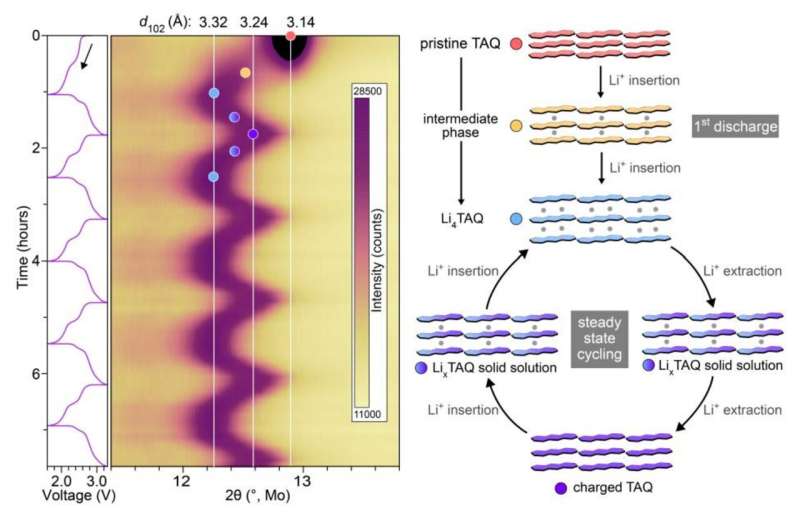This article has been reviewed according to Science X's editorial process and policies. Editors have highlighted the following attributes while ensuring the content's credibility:
fact-checked
peer-reviewed publication
trusted source
proofread
Next-generation batteries could go organic, cobalt-free for long-lasting power

In the switch to "greener" energy sources, the demand for rechargeable lithium-ion batteries is surging. However, their cathodes typically contain cobalt—a metal whose extraction has high environmental and societal costs. Now, researchers in ACS Central Science report evaluating an earth-abundant, carbon-based cathode material that could replace cobalt and other scarce and toxic metals without sacrificing lithium-ion battery performance.
Today, lithium-ion batteries power everything from cell phones to laptops to electric vehicles. One of the limiting factors for realizing a global shift to energy produced by renewable sources—particularly for the transition from gasoline-powered cars to electric vehicles—is the scarcity and mining difficulty of the metals, such as cobalt, nickel, and magnesium, used in rechargeable battery cathode manufacturing.
Previous researchers have developed cathodes from more abundant and lower-cost carbon-containing materials, including organosulfur and carbonyl compounds, but those prototypes couldn't match the energy output and stability of traditional lithium-ion batteries.
So, Mircea Dincă and his colleagues wanted to see if other carbon-based cathode materials could be more successful. They may have found a worthy candidate in bis-tetraaminobenzoquinone (TAQ). TAQ molecules form layered solid-state structures that can potentially compete with traditional cobalt-based cathode performance.
Building on their prior work that showed TAQ's effectiveness as a supercapacitor material, Dincă's team tested the compound in a cathode for lithium-ion batteries. To improve cycling stability and to increase TAQ adhesion to the cathode's stainless-steel current collector, they added cellulose- and rubber-containing materials to the TAQ cathode.
In the researchers' proof-of-concept demonstration, the new composite cathode cycled more than 2,000 times safely, delivered an energy density higher than most cobalt-based cathodes, and charged-discharged in as little as six minutes.
The TAQ-based cathodes need additional testing before they appear on the market, but the researchers are optimistic that they could enable the high-energy, long-lasting, and fast-charging batteries needed to help speed a global transition to a renewable energy future that's cobalt- and nickel-free.
More information: Tianyang Chen et al, A Layered Organic Cathode for High-Energy, Fast-Charging, and Long-Lasting Li-Ion Batteries, ACS Central Science (2024). DOI: 10.1021/acscentsci.3c01478


















